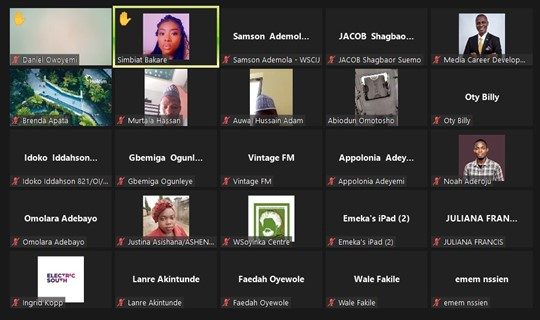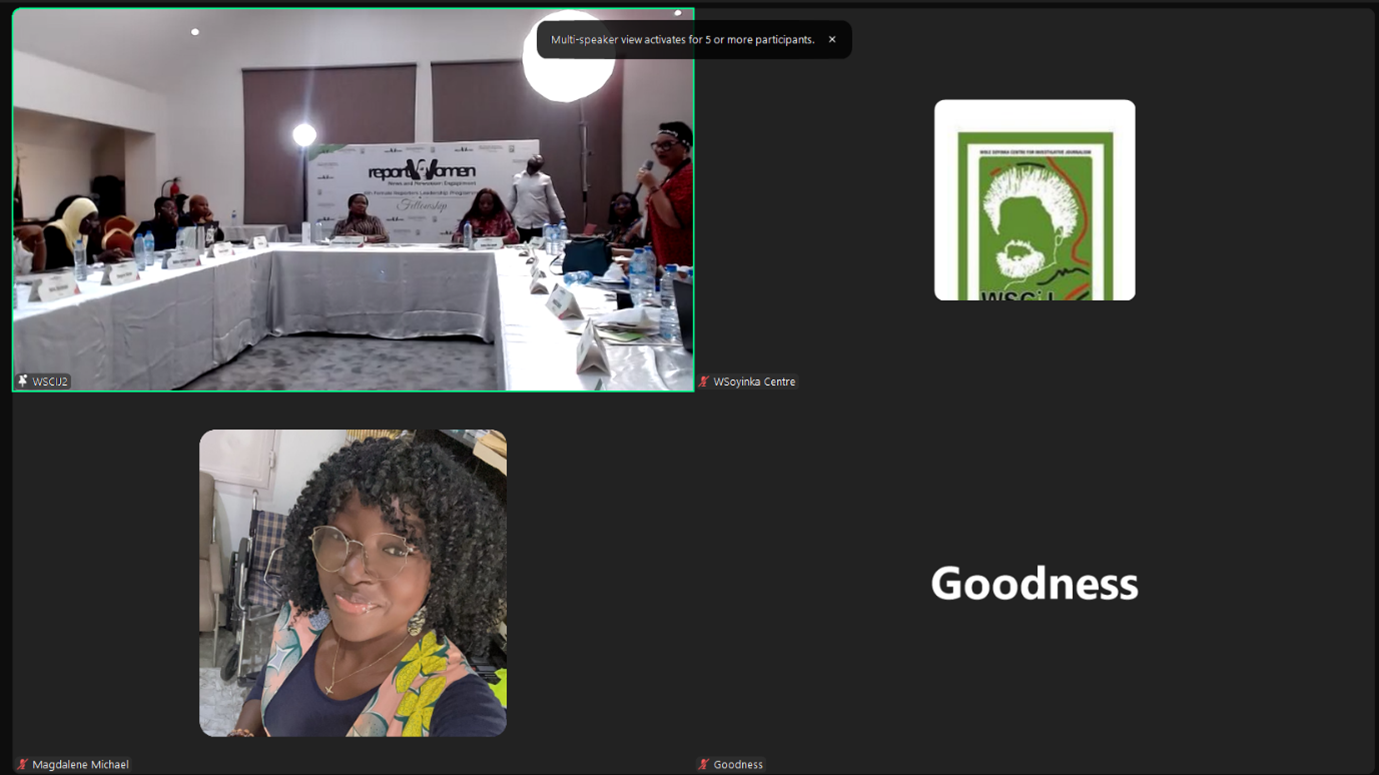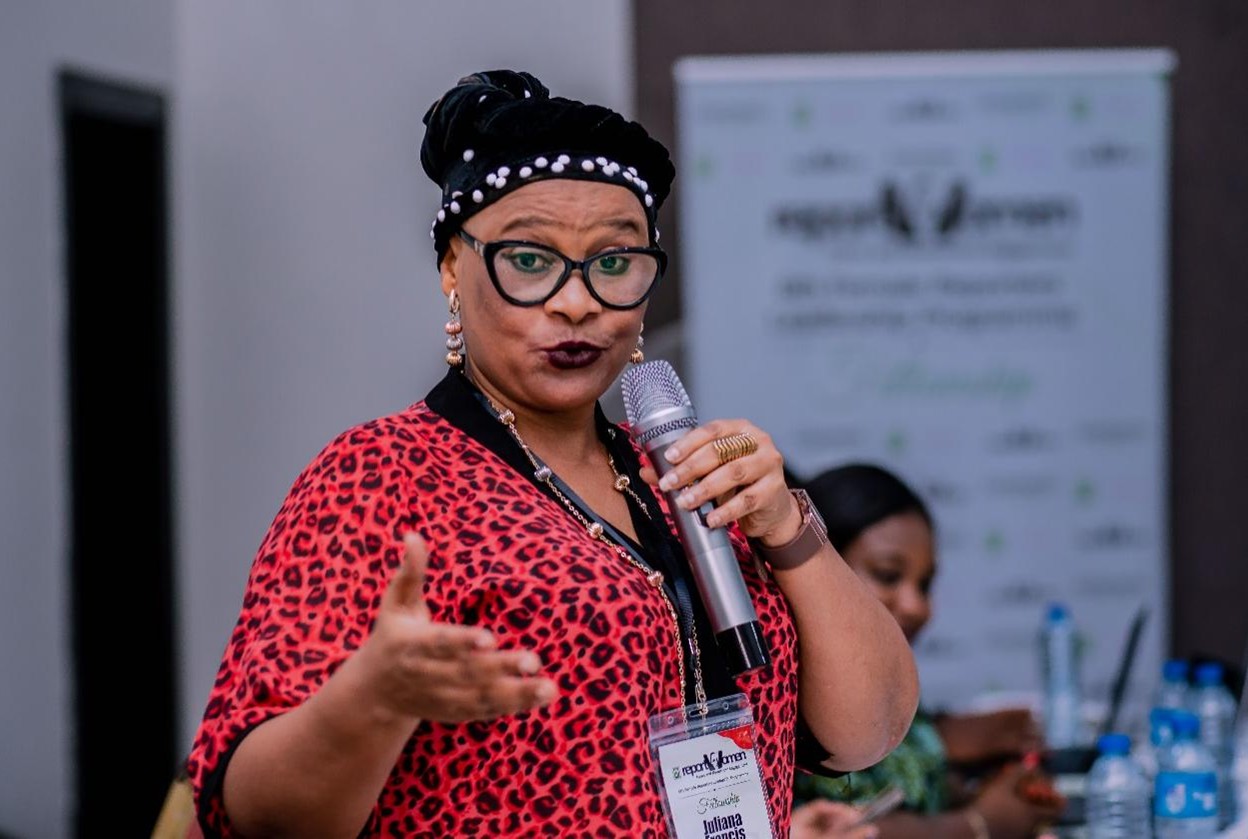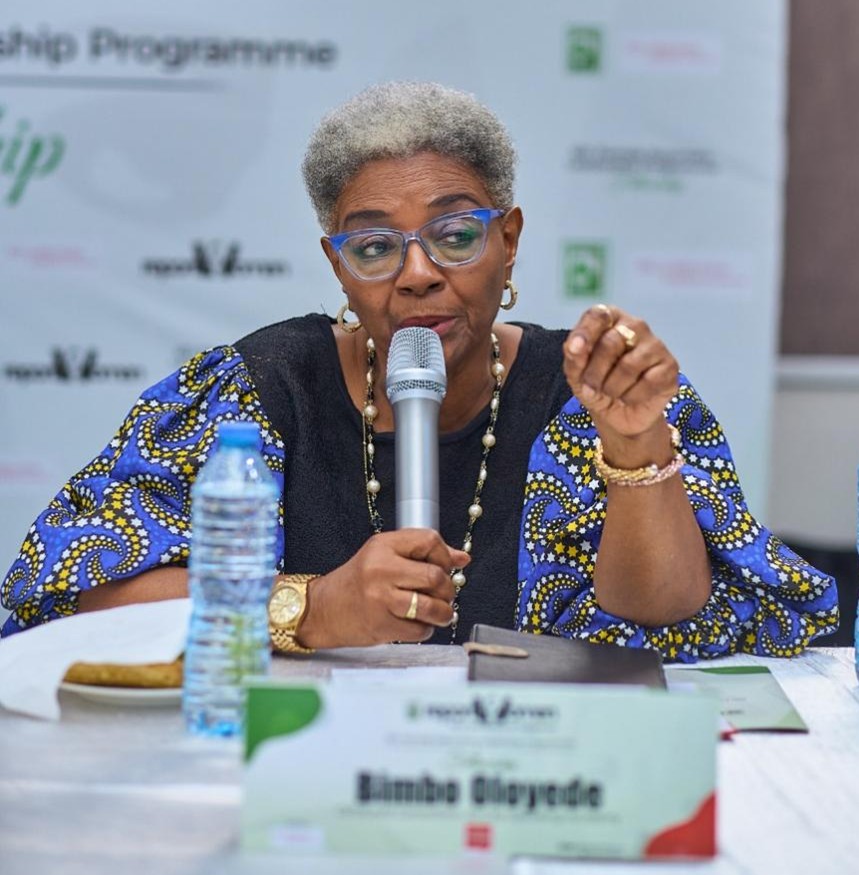The public presentation the ‘Who leads the newsroom and news?‘ report on parity between men and women in newsrooms and news in Nigeria by the Wole Soyinka Centre for Investigative Journalism (WSCIJ) on Thursday 15 February 2024 on Zoom, provided a platform for stakeholders to call for media organisations to address gender disparities in newsrooms and news, implement gender-friendly policies, increase the representation of women in news reporting and leadership roles, promote gender-sensitive reporting and present women as expert sources. The report underscored the ethical and moral imperative of achieving gender parity in the media to ensure accountability and representation in society.
Theophilus Abbah, Programme Director, Daily Trust Foundation, reviewed the 90-page report at the virtual event moderated by Brenda Apata, Executive Director, BrenCare Foundation. Dickens Olewe, Programme Officer, Bill & Melinda Gates; Emeka Izeze, Director, FrontFoot Media and Aminu Salihu, Deputy Director, On Nigeria, MacArthur Foundation were some of the stakeholders who commented on the report alongside Ruq’qayah Yusuf, lecturer at the Department of Information and Media Studies, Bayero University, Kano; Lekan Otufodunrin, Executive Director, Media Career Development Network and Juliana Francis, Deputy Editor, The Eagle Online.
In his opening remarks, Samson Ademola, Programme Officer, WSCIJ, stated that the report highlighted the underrepresentation of women in the media. He said the report will help the media access and reflect on its policies on equity between men and women as the schools of communication and journalism students can refocus on gender parity in news reportage.
Olewe, Programme Officer, Bill and Melinda Gates Foundation, who supported the project, in his goodwill message, congratulated the WSCIJ while he emphasised the fact that the issue of newsrooms reflecting the society they report and providing a gender-balanced view in their reports is an area where journalism had struggled. He hoped that the report would frame not just the problems but the offer solutions to cross correct and find ways for female journalists to rise through the ranks and be the best they can be.
While reviewing the report, Abbah commended WSCIJ for its work and recommended that media organisations implement policies and improve the representation of women in news reporting, increase the representation of female expert sources in media coverage and promote gender-sensitive reporting to address gender imbalance in the news and newsroom leadership. Noting that the report was compiled through empirical data, he advised WSCIJ to circulate the document among news media organisations and professional bodies such as the Newspapers Proprietors Association of Nigeria (NPAN), the Guild of Corporate Publishers, the Nigerian Guild of Editors, and the Nigerian Union of Journalists (NUJ) among others. Abbah noted that the advocacy for gender equity in the newsroom should be multi-layered with multiple activities until the call for equity becomes irresistible.
Izeze in his remarks, said the report draws the attention of industry players and decision-makers to the need for affirmative action and for the newsrooms to reflect the male-female ratio reality of society. The former Editor-in-Chief of The Guardian emphasised the importance of intentional recruitment and mentoring for female journalists. Furthermore, he encouraged WSCIJ to actively engage media houses and owners with the findings of the report.
According to Francis the report is a tool to engage policymakers and data for journalists reporting gender issues. She highlighted the abundance of female expert sources across sectors and urged journalists to seek relevant female voices in their reports.
The need for female journalists to carve a niche for themselves in the face of cultural, ethnic, and religious barriers was the focus of Yusuf. In her opinion, the media industry is highly competitive hence, female journalists must strategically position themselves for leadership positions.
Otufodunrin stressed the importance of media leveraging technological innovations. He holds the belief that technology has enhanced the delivery of news and eased the burdens associated with extended work hours in newsrooms which reportedly affects gender representation in the media. He called for equity in the media industry and urged media leaders to address the crisis of mass communication students opting for career paths order than journalism.
Abigail Ogwezzy-Ndisika, Professor of Mass Communications at the University of Lagos, said stakeholders must be proactive to engage media regulators to design gender-friendly policies. She urged WSCIJ to engage Ministries of Women Affairs, relevant National Assembly Committees, and media owners. Another academic, Jacob Shagbaor-Suemo, Head of the Mass Communication Department, Nile University, Abuja, stated that journalism is interest-driven, as he advocated for training and empowerment of female journalists. Other contributors to the discussion tasked media leaders to increase commitment to parity, offer tailored leadership training for female journalists and deliberately recruit and mentor of female journalists.
In her closing statement, Motunrayo Alaka, Executive Director/CEO of WSCIJ, noted that the report was the fifth since the inception of the Report Women programme in 2014. She highlighted that media leaders must become intentional as the WSCIJ continues to provide them with opportunities for self-reflection with interventions like the Report Women programme and the ‘Who leads the newsroom and news’, report amongst others. She reiterated WSCIJ’s commitment to engage newsrooms with the report and provide an expert source guide platform that will make profiles of female sources across select sectors readily available as sources of news parity between men and women was an ethical, editorial, business and sustainability issue the media must address while it holds society accountable.
You can download the report, ‘Who leads the newsrooms and news’ here.
Signed
WSCIJ Team








